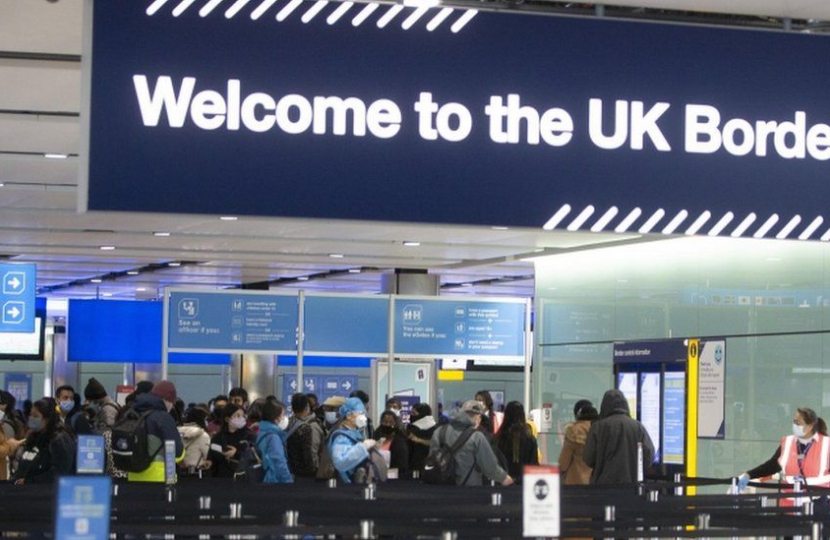
Romford, like many areas in the UK, is facing the repercussions of unprecedented immigration levels, reaching a record 1.1 million residence visas granted to non-UK nationals in the year to mid-2022. This influx has added around seven million to Britain's population in the past two decades, with Romford feeling the strain on its public services.
The pressure on overstretched public services is evident, with nearly 700,000 new GP registrations by migrants in 2019/20 alone. Furthermore, the demand for housing has reached a critical point, requiring a new home to be built in England every five minutes to meet the soaring needs caused by record immigration.
Research consistently highlights the economic burden of immigration on H.M.'s Treasury, with an estimated £13 billion cost per year, according to a U.C.L. study from 2014/15. Public sentiment echoes these concerns, as six in ten people support reducing immigration, and nearly 8 in 10 believe the government is mishandling the issue.
In Romford, the impact is felt on multiple fronts. The rapid cultural and societal changes, as noted by Baroness Louise Casey, are a cause for concern. Communities are witnessing their local way of life changing at an accelerated pace. Moreover, the failure of politicians to fulfill promises of immigration reduction and control has eroded voter trust and democracy.
I do not believe there has ever been an electoral mandate for open borders. On the contrary, Governments of all parties have promised the British people that they would strictly control the entry of peoples into our country.
Indeed, the expectation of my constituents is that our Government will implement a policy to guard our borders from land, sea, air and the channel tunnel; to manage our immigration system to serve our national interest; and, most importantly of all, to keep our people safe from harm. I have to tell the House that the clamour of the British people for such an approach is greater now than at any time before, and no Government can ignore it.Andrew Rosindell M.P. presenting his Private Members' Bill, 'United Kingdom Borders (Control and Sovereignty),' to the House, debated on Tuesday 15 September 2015
The current population density of England, standing at 429 people per square kilometer, surpasses that of the Netherlands, making England the most densely populated nation in Europe. This density is reflected in Romford, where the strain on infrastructure, roads, hospitals, and schools is acutely felt.
To address these challenges, it is imperative to reduce the current level of immigration and restore effective control of the British border. Romford, like other areas, needs policies that consider the impact on public services, infrastructure, and societal cohesion. By delivering on promises to reduce immigration, the government can rebuild credibility, respond to public wishes, and ensure a cohesive community that protects and enriches British culture and values.



